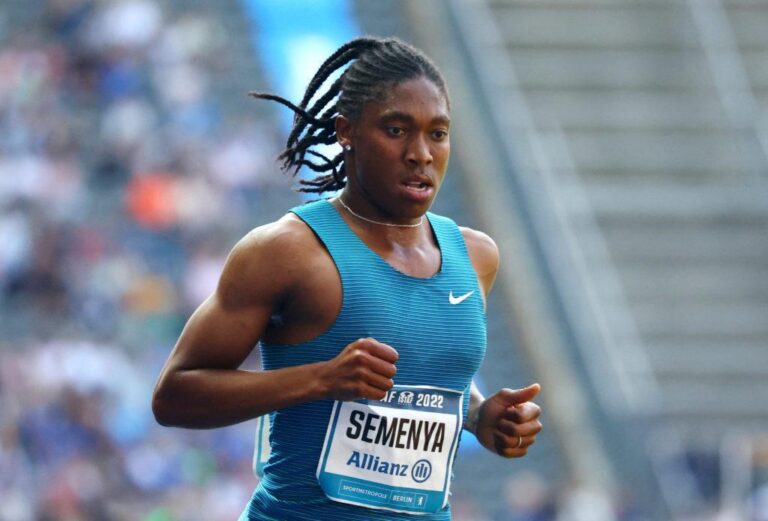The Supreme Court has announced it will hear cases involving the participation of transgender athletes in competitive sports, marking a pivotal moment in an ongoing and deeply contentious national debate. The rulings are expected to have far-reaching implications for both athletic policies and the rights of transgender individuals across the United States. This development comes amid a growing number of state-level regulations and legal challenges surrounding gender identity and sports, placing the highest court at the center of a complex intersection of law, science, and civil rights.
Supreme Court Review Signals Pivotal Moment for Transgender Athletes’ Rights
The Supreme Court’s decision to review cases concerning the participation of transgender athletes in competitive sports marks a watershed moment,perhaps reshaping the fabric of gender rights within athletic arenas nationwide. At the core are debates over fairness, inclusion, and the interpretation of federal laws such as Title IX, which prohibits sex-based discrimination in education programs receiving federal funds. Advocates argue the cases could either reinforce protections for transgender athletes or curtail their participation rights, creating profound implications for school sports policies and beyond.
Key issues under scrutiny include:
- Balancing competitive equity with anti-discrimination protections
- The role of physiological differences versus gender identity
- Legal precedents influencing future sports governance
| Stakeholder | Position | Potential Impact |
|---|---|---|
| Advocacy Groups | Support inclusive participation | Expanded rights for transgender athletes |
| Some Athletic Associations | Focus on maintaining competitive fairness | Stricter eligibility standards |
| Legal Experts | Debate around constitutional and civil rights | Establishment of new legal benchmarks |
Legal Arguments and Social Implications at the Heart of the Court’s Docket
The Supreme Court’s decision to take up cases involving transgender athletes has ignited a complex debate at the intersection of constitutional law, gender rights, and sports regulations. Central to the legal arguments are questions regarding the interpretation of Title IX protections and the extent to which schools can enforce sex-based athletic participation policies without engaging in unlawful discrimination. Proponents argue that preserving categories based on biological sex is essential for fair competition, while opponents maintain that excluding transgender athletes violates their civil rights and hampers inclusivity.
The social implications reach beyond the courtroom, touching on broader cultural and educational dynamics. Advocates emphasize the importance of fostering an environment where transgender youth can participate fully and safely in sports, citing benefits to mental health and social integration. Conversely, critics voice concern about competitive equity and the impact on cisgender athletes. Below is a summary of key stakeholder positions:
- Supporters of inclusion: Emphasize civil rights and equal access
- Supporters of restrictions: Highlight fairness and physical advantages
- Educational institutions: Caught between policy compliance and diverse community needs
- Legal experts: Focus on constitutional interpretation and precedent-setting implications
| Aspect | Pro-Inclusion View | Restriction Advocates |
|---|---|---|
| Legal Basis | Title IX’s anti-discrimination clause | Biological sex distinctions in law |
| Sports Fairness | Focus on access and participation | Concerns over competitive balance |
| Social Impact | Improved mental health, inclusivity | Protecting conventional women’s sports |
Potential Impact on Sports Policies and Gender Inclusion Nationwide
The Supreme Court’s decision to hear cases involving transgender athletes signals a pivotal moment for sports governance across the United States.As the highest judicial authority weighs in, states may soon face unified standards or sweeping clarification on policies that have, until now, varied widely. These cases could influence everything from high school athletics to collegiate and professional sports, prompting organizations to reevaluate participation guidelines to ensure fairness while also respecting inclusivity.
The implications of this ruling extend beyond the field, potentially reshaping gender inclusion laws nationwide.Expect to see:
- State legislatures revisiting bills related to transgender participation in sports.
- Educational institutions updating codes of conduct and eligibility criteria for student-athletes.
- Sports federations adopting new frameworks that balance competitive equity with human rights.
- Legal precedents that could either strengthen protections for transgender athletes or affirm restrictions that spark further debates.
| Stakeholder | Potential Actions | Impact Timeline |
|---|---|---|
| State Governments | Amend or reinforce sports participation laws | 6-12 months post-ruling |
| Educational Boards | Implement new eligibility policies | Immediate to 1 year |
| Sports Associations | Develop inclusive competitive standards | 1-2 years |
Strategies for Advocates Navigating the Evolving Legal Landscape
As landmark cases involving transgender athletes gain the Supreme Court’s attention, advocates must sharpen their legal acumen to effectively represent their clients within this shifting jurisdiction. Key strategies include complete legal research on evolving regulations at state and federal levels, coupled with developing nuanced arguments that balance civil rights with competitive fairness. Collaboration with medical experts and social scientists is increasingly crucial to provide courts with evidence-based insights into gender identity and athletic participation.
Effective advocacy now demands a multifaceted approach, incorporating:
- Staying updated on new case law and policy amendments related to transgender rights in sports.
- Engaging community stakeholders to construct socially informed legal narratives.
- Utilizing strategic media relations to influence public discourse and court perceptions.
| Strategy | Key Focus |
|---|---|
| Legal Research | Case precedent & statutes |
| Expert Collaboration | Medical & social evidence |
| Community Engagement | Cultural context & support |
| Media Strategy | Public narrative shaping |
Final Thoughts
As the Supreme Court prepares to hear cases involving transgender athletes, the nation awaits a pivotal ruling that could reshape policies on gender identity and athletic participation across the country. The decisions made in these cases will carry significant implications for schools, sports organizations, and advocates on all sides of the debate. With the court’s involvement signaling the issue’s growing legal and cultural importance, stakeholders remain attentive to how this landmark moment will influence the future of transgender rights in athletics.




